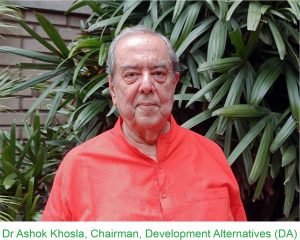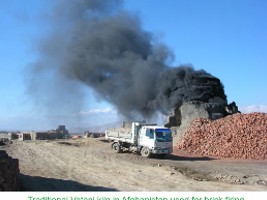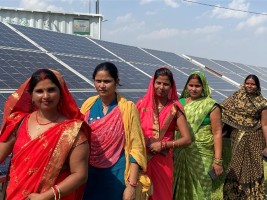People, Planet and Prosperity First: The DA Perspective
 In the Indian context, the concept of “Independence” generally continues to evoke a positive, eudemonic feeling of achievement from gaining political freedom from colonial rule. After seven decades of political self-rule, however, one could be forgiven for hoping for more. National pride, expressed through respect for the institutions of governance – the Constitution, the making and maintaining of laws, the delivery of public goods, and national unity expressed through adoption of the symbols of unique identity such as the Flag, the Anthem, the Emblems and designated fauna and flora are important manifestations of our collective commitment to create a better future.
In the Indian context, the concept of “Independence” generally continues to evoke a positive, eudemonic feeling of achievement from gaining political freedom from colonial rule. After seven decades of political self-rule, however, one could be forgiven for hoping for more. National pride, expressed through respect for the institutions of governance – the Constitution, the making and maintaining of laws, the delivery of public goods, and national unity expressed through adoption of the symbols of unique identity such as the Flag, the Anthem, the Emblems and designated fauna and flora are important manifestations of our collective commitment to create a better future.
But the citizens of India deserve much more: we aspire to true freedom and liberation that can enable each one of us to be the driver of fundamental, universal progress, the basis of creating a better life for all. This will need different arrangements for national self-governance from the top-down ones that we adopted with little change from our former colonial rulers, to a political system in which decision-making powers and responsibility for action flow from bottom upwards. This needs much greater emphasis on evolving a public that is better educated and informed, capable of creative thinking and initiative, and holding its leaders to account on a continuing basis, not just at the time of the next election. Today, new pedagogical methods and communication technologies make such a regime eminently possible.
The work of Development Alternatives over the past forty years shows that this possibility can easily be made a reality, provided the relationships among the different social sectors (government, business and civic institutions), between the different social structures (family and community, and national) and among the different functions of social systems (consumption, production and education) become less vertical (hierarchical) and more horizontal (equal and balanced) than they are today. This Independence Day edition of the DA Newsletter describes a few projects and initiatives that try to demonstrate the changes needed for such a participative and self-organising world. Many more can be seen on our website and newsletter archive.
From the vantage point of the inception philosophy of Development Alternatives, confirmed by the results of our four decades of work on the ground, these are the three sets of relationship that must change fundamentally to create the independent India wanted by the great majority of our citizens. In the context of the current Indian Presidency of the G20, it may be pertinent to showcase these to other member countries having similar thoughts about their development objectives.
First, put people in charge of their lives. This will need a totally different configuration of the systems of governance. In particular, it will need a much stronger civil society than one that exists or is envisaged today, capable of generating, nurturing and supporting individual creativity, responsibility and action. And to act as a mechanism for ensuring integrity, rights, transparency, foresight and generating institutions and instruments for facilitating universal wellbeing.
Second, put the last first. No nation can be proud of its independence if any of its citizens is deprived of the basic human needs. From the country-level to the community-level, all efforts must be devoted not just to prosperity of the rich or average person but to full justice and economic fairness as well. Neither grandiose, pretentious monuments or events, nor superficial, palliative projects can be substitutes for carefully thought-through systemic, self-sustaining, long-lasting initiatives. The future of India lies in the small and local: mini-institutions for governance, enterprise, education.
Third, put the long-term above all. The enormous value of the heritage our ancestors left us in the form of a productive natural resource base, a rich culture, a knowledge system and a society and economy capable of supporting the world’s largest population imposes on us an obligation to be equally good ancestors to future generations. The benefits of doing so, of course, will also accrue to current generations. Caring for the Earth, our biodiversity, our climate, our soils and forests, our rivers and waters must be absolutely fundamental in any “development” decision we make. Perhaps not coincidentally, these lessons, relearned by civil society organisations over the last few years, are of course, the inexorable outcomes of what had already been recognised and expounded a hundred years ago by the Mahatma, who fought for and achieved our country’s independence.
Dr Ashok Khosla
akhosla@devalt.org
The views expressed in the article are those of the authors and not necessarily those of Development Alternatives.
This blog first appeared as an editorial in Development Alternatives Newsletter August, 2023
https://devalt.org/storage/app/public/uploads/newsletter/pdf_1692358855.pdf





Leave a Reply